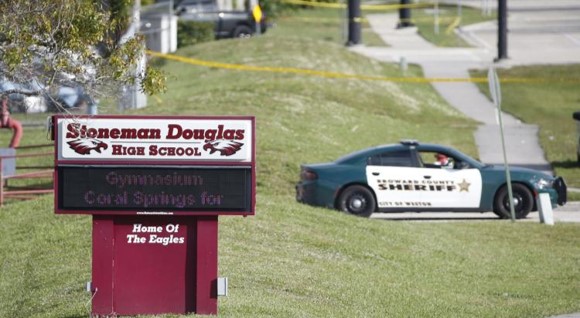

What is our fallen world’s greatest manifestation of evil?
Is it a school shooter pathologically pulling a trigger while aiming at defenseless, innocent students as we’ve just witnessed in Parkland, Florida, and in way-too-many other schools?
Is it a ruthless dictator acting out his personal ethnic or political cleansing as every generation has witnessed since the beginning of civilization and kingdoms?
Is it a disease like cancer that strikes down millions of people every year, including children?
To even ponder these situations leads us to the thought progression that goes something like this: Just when you think it can’t get any worse, it does.
The evil I have gone toe-to-toe with is the disease of cancer. I have watched it indiscriminately claim the lives of family, including my spouse. It’s the evil that personalized the Fall in my life, causing me to experience the events of the Garden through my own personal tragedy.
When we experience evil, whether first-hand or via news reports, we usually hear ourselves say “Well, we live in a fallen world.” But the Fall isn’t just the reason why bad things happen. The Fall is also why bad things hurt.
The consequences of the Fall play out in about 15 steps in Genesis 3:7-23. Each step represents a loss that we all experience today. For example, in Genesis 3:7 we’re told that Adam and Eve knew they were naked. The loss here is innocence. And it’s a loss we interact with every day.
Recently, in prep for InWord’s upcoming Bible study on loss (Lossology 101), I did a personal exercise that gave me perspective on the Fall and personal pain. I stepped into each loss noted in Genesis 3 and spent time thinking how I experience that loss in practical, daily ways. The exercise helped me see that the hurts, temptations, and frustrations that I experience daily can be easily traced back to Genesis 3. For some reason, this exercise has helped me accept the position of this world and be more desperate for the grace, strength, and peace that God readily dispenses.
Perhaps, while we are under a national cloud of tragedy, you might find this exercise helpful for you and your students. I’ve put the exercise in a form for others to use with this doc here.
It would be easy to wallow in the darkness of the Fall, letting the hurts, temptations, and frustrations turn into bitterness, regrets, and anger. But thanks be to God, we don’t have to. In fact, Romans 8:18-39 takes us straight through experiencing the “frustration” of creation to experiencing the ministry of God’s love in Christ.
Prayers!
Barry

Barry Shafer
InWord Founder/Director